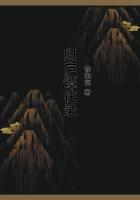The other of the minor deities at Nemi was Virbius. Legend had it that Virbius was the young Greek hero Hippolytus, chaste and fair, who learned the art of venery from the centaur Chiron, and spent all his days in the greenwood chasing wild beasts with the virgin huntress Artemis (the Greek counterpart of Diana) for his only comrade. Proud of her divine society, he spurned the love of women, and this proved his bane. For Aphrodite, stung by his scorn, inspired his stepmother Phaedra with love of him; and when he disdained her wicked advances she falsely accused him to his father Theseus. The slander was believed, and Theseus prayed to his sire Poseidon to avenge the imagined wrong. So while Hippolytus drove in a chariot by the shore of the Saronic Gulf, the sea-god sent a fierce bull forth from the waves. The terrified horses bolted, threw Hippolytus from the chariot, and dragged him at their hoofs to death. But Diana, for the love she bore Hippolytus, persuaded the leech Aesculapius to bring her fair young hunter back to life by his simples.
Jupiter, indignant that a mortal man should return from the gates of death, thrust down the meddling leech himself to Hades. But Diana hid her favourite from the angry god in a thick cloud, disguised his features by adding years to his life, and then bore him far away to the dells of Nemi, where she entrusted him to the nymph Egeria, to live there, unknown and solitary, under the name of Virbius, in the depth of the Italian forest. There he reigned a king, and there he dedicated a precinct to Diana. He had a comely son, Virbius, who, undaunted by his father's fate, drove a team of fiery steeds to join the Latins in the war against Aeneas and the Trojans. Virbius was worshipped as a god not only at Nemi but elsewhere; for in Campania we hear of a special priest devoted to his service. Horses were excluded from the Arician grove and sanctuary because horses had killed Hippolytus. It was unlawful to touch his image. Some thought that he was the sun. But the truth is, says Servius, that he is a deity associated with Diana, as Attis is associated with the Mother of the Gods, and Erichthonius with Minerva, and Adonis with Venus.
What the nature of that association was we shall enquire presently. Here it is worth observing that in his long and chequered career this mythical personage has displayed a remarkable tenacity of life. For we can hardly doubt that the Saint Hippolytus of the Roman calendar, who was dragged by horses to death on the thirteenth of August, Diana's own day, is no other than the Greek hero of the same name, who, after dying twice over as a heathen sinner, has been happily resuscitated as a Christian saint.
It needs no elaborate demonstration to convince us that the stories told to account for Diana's worship at Nemi are unhistorical. Clearly they belong to that large class of myths which are made up to explain the origin of a religious ritual and have no other foundation than the resemblance, real or imaginary, which may be traced between it and some foreign ritual. The incongruity of these Nemi myths is indeed transparent, since the foundation of the worship is traced now to Orestes and now to Hippolytus, according as this or that feature of the ritual has to be accounted for. The real value of such tales is that they serve to illustrate the nature of the worship by providing a standard with which to compare it; and further, that they bear witness indirectly to its venerable age by showing that the true origin was lost in the mists of a fabulous antiquity. In the latter respect these Nemi legends are probably more to be trusted than the apparently historical tradition, vouched for by Cato the Elder, that the sacred grove was dedicated to Diana by a certain Egerius Baebius or Laevius of Tusculum, a Latin dictator, on behalf of the peoples of Tusculum, Aricia, Lanuvium, Laurentum, Cora, Tibur, Pometia, and Ardea. This tradition indeed speaks for the great age of the sanctuary, since it seems to date its foundation sometime before 495 B.C., the year in which Pometia was sacked by the Romans and disappears from history. But we cannot suppose that so barbarous a rule as that of the Arician priesthood was deliberately instituted by a league of civilised communities, such as the Latin cities undoubtedly were. It must have been handed down from a time beyond the memory of man, when Italy was still in a far ruder state than any known to us in the historical period. The credit of the tradition is rather shaken than confirmed by another story which ascribes the foundation of the sanctuary to a certain Manius Egerius, who gave rise to the saying, There are many Manii at Aricia. This proverb some explained by alleging that Manius Egerius was the ancestor of a long and distinguished line, whereas others thought it meant that there were many ugly and deformed people at Aricia, and they derived the name Manius from Mania, a bogey or bugbear to frighten children. A Roman satirist uses the name Manius as typical of the beggars who lay in wait for pilgrims on the Arician slopes. These differences of opinion, together with the discrepancy between Manius Egerius of Aricia and Egerius Laevius of Tusculum, as well as the resemblance of both names to the mythical Egeria, excite our suspicion. Yet the tradition recorded by Cato seems too circumstantial, and its sponsor too respectable, to allow us to dismiss it as an idle fiction. Rather we may suppose that it refers to some ancient restoration or reconstruction of the sanctuary, which was actually carried out by the confederate states. At any rate it testifies to a belief that the grove had been from early times a common place of worship for many of the oldest cities of the country, if not for the whole Latin confederacy.
2. Artemis and Hippolytus















